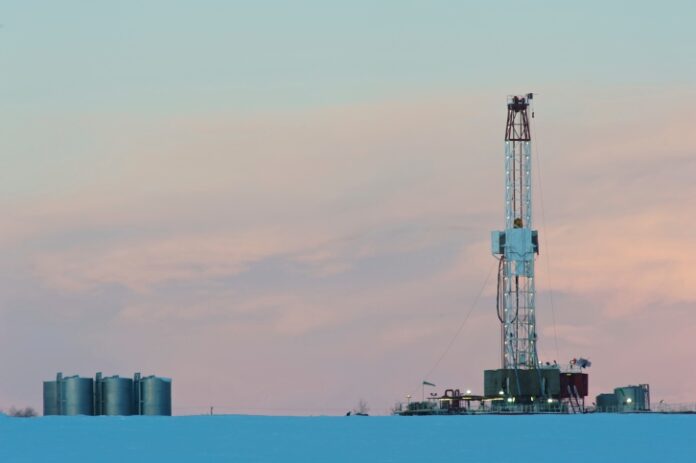Despite soaring oil prices, increased fracking in western North Dakota has not been matched by a rise in new well drilling, reports Lynne Helms, director of the state’s Department of Mineral Resources (DMR).
The industry is “aggressively” pursuing fracking of 449 wells drilled previously but not completed, says Helms. Ten more wells in North Dakota’s Bakken region inventory were fracked in December 2021, 15 more in January, and 90 in February.
Even with the increased activity, North Dakota’s January production of 1.09 million barrels of oil per day was 5 percent less than December’s, according to the latest figures available from the DMR. Frigid weather was blamed for some of the falloff.
Producers are likely exploiting existing holdings rather than investing long-term in an uncertain regulatory climate, says the DMR.
Biden’s ‘Harshly Negative Regulations’
Volatile markets, the threat of steeply reduced demand under the Biden administration’s fuel economy standards and emissions guidelines, regulatory uncertainty, and the burden of environmental, social, and governance (ESG) criteria are weighing heavily on oil production in North Dakota, says Bette Grande, president of the Roughrider Policy Center.
“The short term does not look great for the Bakken despite oil prices being double what was forecast 18 months ago,” said Grande. “Harshly negative regulations, the lack of capital due to ESG factors, supply chain issues for everything from pipe to parts, and the lack of experienced and willing workers are much larger considerations than the steep rise in oil prices resulting from Russia’s invasion of Ukraine on the prospects for expanded production.
“Shale companies have been burned in the past and are reluctant to take on debt with rising interest rates when they know the regulators can flip the regulatory switch at any time,” said Grande.
Activists ‘Scaring Off Investment’
Those considering drilling new wells are indeed taking huge risks, says Timothy Benson, senior policy analyst at The Heartland Institute, which co-publishes Environment & Climate News.
“Overly burdensome regulatory processes are definitely hurting new production by scaring off investment through fear of future red tape,” said Benson. “It also doesn’t help that lending and capital investment to oil and natural gas firms for new production is being choked off by bureaucrats and radical activist investors driven by an irrational fear of climate change.
“Without these roadblocks, production would certainly be even higher in North Dakota and elsewhere,” said Benson. “Many firms simply don’t think it’s a safe time to try to open up new wells, and many investors don’t think it’s a safe time to capitalize these firms. It’s a double whammy.”
Kevin Stone (kevin.s.stone@gmail.com) writes from Arlington, Texas.


























